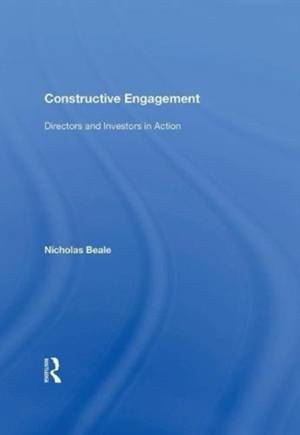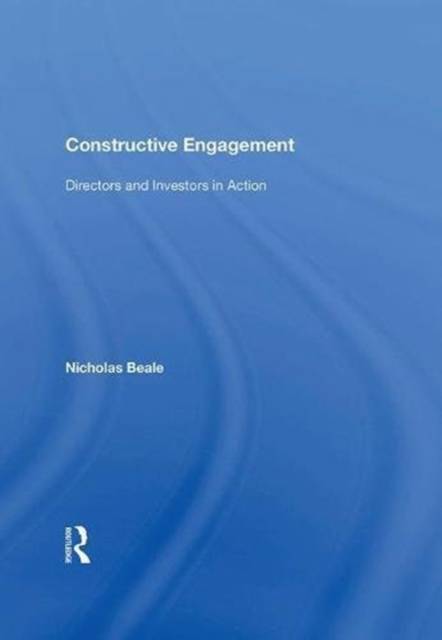
- Afhalen na 1 uur in een winkel met voorraad
- Gratis thuislevering in België vanaf € 30
- Ruim aanbod met 7 miljoen producten
- Afhalen na 1 uur in een winkel met voorraad
- Gratis thuislevering in België vanaf € 30
- Ruim aanbod met 7 miljoen producten
Zoeken
€ 195,95
+ 391 punten
Omschrijving
The relationships between investors, directors and companies have never been so vital, or so confusing. Gone are the days when being a non-executive director (NED) meant an agreeable lunch and when CEOs wanted them to meet investors 'over my dead body'. Even the most admired companies can be engulfed in scandal and the NEDs find themselves having to drive through fundamental changes. The corporate environment is full of pitfalls for unwary boards. And there are plenty of headline stories of directors who have failed to measure up. Equally, a high quality board which has the confidence of the investors is a major strategic asset: making better decisions, attracting better people and allowing bolder strategies to succeed with investor backing. Nicholas Beale uses research gathered from leading FTSE 100 chairmen, directors, non-executive directors and investors to explore their changing roles. What emerges is a fascinating and instructive picture of constructive engagement; an approach that sees these companies (and the people behind them), each in their own way, address the challenges that are at the heart of global capitalism, and that have lead to the Higgs Review, Sarbanes-Oxley and other regulatory attempts to address corporate mismanagement. From discussions with over 100 leading practitioners, detailed studies of three leading companies, three leading investors and an extended case study on investor engagement at Royal Dutch Shell, the author draws a series of ideas and guidance for all of the parties involved. Sadly this book has come too late for the directors and investors of those companies that have crashed and burned, but all others who are, or aspire to be, directors or significant investors in listed companies should read this book, learn the lessons it has to offer and start adopting them in the organization(s) with which you work and in the portfolios you develop. For more information visit www.conseng.net
Specificaties
Betrokkenen
- Auteur(s):
- Uitgeverij:
Inhoud
- Aantal bladzijden:
- 300
- Taal:
- Engels
Eigenschappen
- Productcode (EAN):
- 9780815388173
- Verschijningsdatum:
- 29/11/2017
- Uitvoering:
- Hardcover
- Formaat:
- Genaaid
- Afmetingen:
- 168 mm x 245 mm
- Gewicht:
- 557 g

Alleen bij Standaard Boekhandel
+ 391 punten op je klantenkaart van Standaard Boekhandel
Beoordelingen
We publiceren alleen reviews die voldoen aan de voorwaarden voor reviews. Bekijk onze voorwaarden voor reviews.











